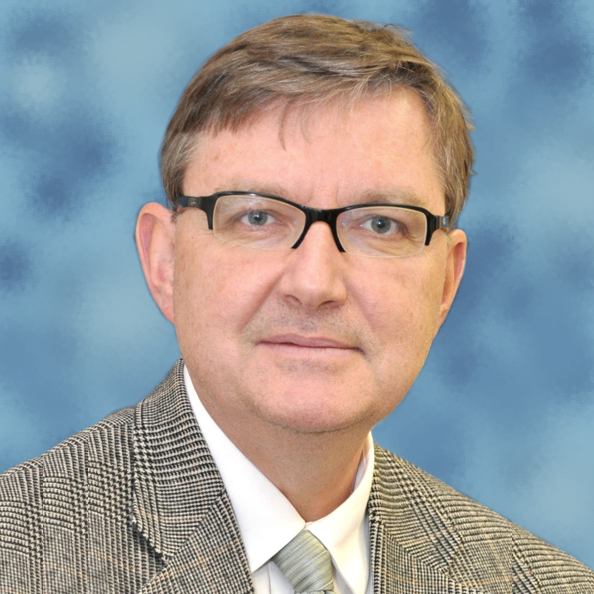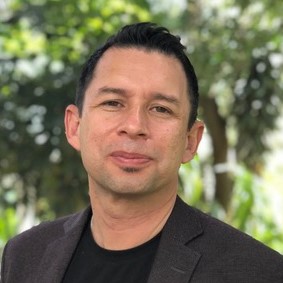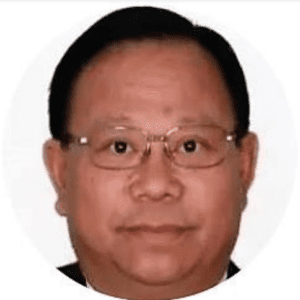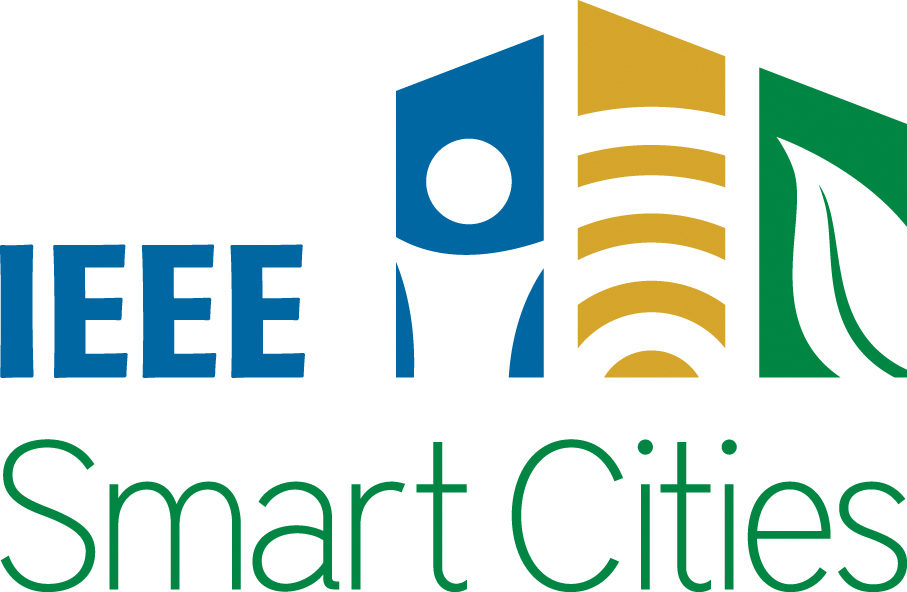Welcome from the Chairs

DAMIR NOVOSEL
Quanta Technology, USA
Chair, IEEE Smart Cities Steering Committee
Executive Chair, IEEE ISC2 2020
Dear attendees,
I am very pleased to welcome you to the 6th IEEE International Smart Cities Conference, and our first virtual event. We hope that the next one will be in person, in one of global Smart Cites.
This conference is organized by the IEEE Smart Cities organization that brings together IEEE’s vast and deep expertise and numerous initiatives to advance the state of the art for smart cities. IEEE is uniquely positioned to help create smarter, more livable, and more resilient neighborhoods and achieve decarbonization targets. Our volunteers and staff draw benefits from global synergies among diverse organizations (vendors, academia, national labs, regulatory organizations, and others) by sharing our members’ technical,
business, and research experiences and contributions.
IEEE Smart Cities is supported by the following IEEE organizations:
- Communications Society (COMSOC)
- Control Systems Society (CSS)
- Industry Applications Society (IAS)
- Power & Energy Society (PES)
- Systems, Man and Cybernetics Society (SMC)
- Council on Electronic Design Automation (CEDA)
In addition, this conference is also supported by the IEEE Technology and Engineering Management Society.
The IEEE International Smart Cities Conference is our flagship event that brings Smart City experts from all around the world to attend this 4-day virtual event and share experiences and views towards connected, green, and resilient future communities.
We are proud of our program with impressive keynotes, panels, tutorials, and high-quality papers, addressing both innovative and practical technologies and applications.
I would like to give special thanks to conference co-chairs Rolland Vida and Victor Larios Rosillo, technical program co-chairs Chiara Boccaletti and Loi Lei Lai, and other members of the organizing committee, as well as our amazing staff, led by Dan Toland and Phyllis Caputo.
We also want to recognize our Gold sponsors, Commonwealth Edison and Quanta Technology, for their support.
Welcome!

ROLLAND VIDA
Budapest University of
Technology and Economics,
Hungary
General Co-Chair, IEEE ISC2 2020
Dear colleagues, smart city experts from industry, academia, and local governments,
The year 2020 is surely dominated by the worldwide pandemic that has turned our world upside down. Hundreds of thousands of people have unfortunately died, the world economy collapsed into a serious recession, we were forced to change the way we live, we work, we study. And the communities that were affected the most by the coronavirus pandemic were those living in large urban areas, with high population density favoring a rapid and easy spread of the infection.
Smart city infrastructures that were thought to be optimized and tailored for the needs of the urban population had to face unprecedented challenges due to radically changed human behaviors. The benefits of public transportation and ride sharing solutions in terms of decreased pollution levels and energy efficiency had to be balanced with the constraints of social distancing. The unforeseen proliferation of homeworking and homeschooling has increased user expectations related to the wired, wireless, and mobile communication infrastructures. But the pandemic affected also the operation of urban power and water distribution networks, waste management systems, and has transformed our attitude towards governmental measures that not long ago would have been considered as severe violations of our individual freedom.
However, one of the main reasons for cities becoming smart should be exactly to safely and efficiently support us, citizens, in such difficult times.
New solutions, new technologies, new ideas are needed to make cities even smarter, enabling them to dynamically and seamlessly adapt even to such drastic changes in our everyday lives as those we just had to face these past months. This is why we have chosen the theme of this year’s conference to be: Smart Cities Solutions for New Challenges, Including a Pandemic.
We sincerely hope that the exciting program we propose will meet your expectations, providing you with valuable new knowledge and experiences.
We certainly did our best in that regard.
Enjoy!

VICTOR M. LARIOS
University of Guadalajara, Mexico
General Co-Chair, IEEE ISC2 2020
Ladies and Gentlemen,
It is my pleasure to share with you the vision behind the keynotes and panels included in the program of this sixth edition of IEEE ISC2 conference. In these exceptional circumstances that obliged us to run a fully virtual edition for the first time, our main concern was to share the best practices on how cities worldwide are evolving and becoming more sustainable from both social, economic, and environmental aspects. Moreover, we intended to balance industry, government, and academia’s participation, to include the complete ecosystem present in all cities. For that reason, you will find among our keynote and panel speakers distinguished representatives of all these sectors, visionaries and real practitioners presenting their innovative ideas about the roots of the urban infrastructures, including smart water management, smart communication, -energy and -mobility solutions, not only from the technological perspective but also from the public policies’point of view.
Since the main theme of the conference this year is related to the coronavirus pandemic, some panels are specifically targeting the special circumstances our cities are currently going through. We adapted therefore the traditional panel of the five IEEE Core Smart Cities (Kansas City, Guadalajara, Trento, Wuxi and Casablanca), covering the vision of North America, Latin America, Europe, Africa, and Asia, to share how technological innovation was managed in these cities during pandemic times. Also, we have dedicated a panel to the effect of COVID-19 on urban transportation, and one to digital surveillance and contact tracing, highlighting the delicate trade-off between public health, security and privacy.
There are no words to describe how excited we are, the entire team of IEEE volunteers working on the development of the conference, to share with you this exciting program. I want to acknowledge the passion, enthusiasm, and commitment of all the organizing committee members during the many months that took us to prepare this sixth ISC2 edition. Please enjoy, use all the knowledge to be shared in the conference to become an actor of change in your city, and be part of the IEEE Smart Cities Community.
Welcome!

CHIARA BOCCALETTI
Sapienza University of Rome,
Italy
Technical Program Co-Chair,
IEEE ISC2 2020
Dear attendees,
It is our great pleasure to invite you all to participate in the rich technical program of the 6th IEEE International Smart Cities Conference (ISC2 2020). As already mentioned, this year the theme of the conference is: Smart Cities Solutions for New Challenges, Including a Pandemic.
The events of the last months that have upset our minds and unsettled our lives could not be ignored by a conference which was always a forum for a high-level, multidisciplinary debate on the best ideas and innovative practices to improve the citizens’ quality of life and their implementation worldwide.
For this reason, we have solicited scientists, researchers, professionals, and administrators to share with us their achievements, smart solutions and best practices especially focused on (but not limited to) the contribution to the smoother management of the unprecedented challenges that all the cities in the world have to face and the minimization of the negative effects on the
society.
The technical areas were subdivided into three large thematic groups:
• Community & Governance
• Infrastructure & Technology
• Data, Privacy & Security
All the topics received great attention and the response of the authors was beyond expectations, considering the novelty of a fully-virtual conference.

LOI LEI LAI
Guangdong University of
Technology, China
Technical Program Co-Chair,
IEEE ISC2 2020
Many high-quality papers were submitted to ISC2 2020, making it very difficult to select those being presented at the conference. We have received 150 submissions from 30 countries. Thanks to the hard work from many international reviewers and at least three rigorous independent reviews per paper, at last, 90 papers are selected for presentation. It is a pity that quite a few good papers had to be rejected, but the Organizing Committee had to meet the IEEE standards.
The most popular areas were Transportation, Energy, and Education, with 25.87%, 12.59% and 9.8% of the total submissions, respectively. For the accepted papers, most of them are from the US, Brazil and China, with a share of 26.86%, 16.70% and 9.30% of the total accepted papers, respectively.
On the last day of the conference the Best Paper Award Ceremony will be held, assigning awards to the three papers that received the best evaluation from the Technical Program Committee.
The live presentations of accepted papers have been subdivided into 15 sessions, covering all the themes. In particular, the “Transportation and Mobility” technical area attracted the largest number of papers, making it necessary to split it over four sessions.
Besides the technical sessions, we are also proud to offer you many other high-quality technical events such as three keynotes, four tutorials, two workshops and seven panels.
Last but not least, the Technical Program Committee will do its best to make your participation in the technical program as fruitful and pleasant as possible and gives you the warmest welcome to this virtual conference IEEE ISC2 2020!

